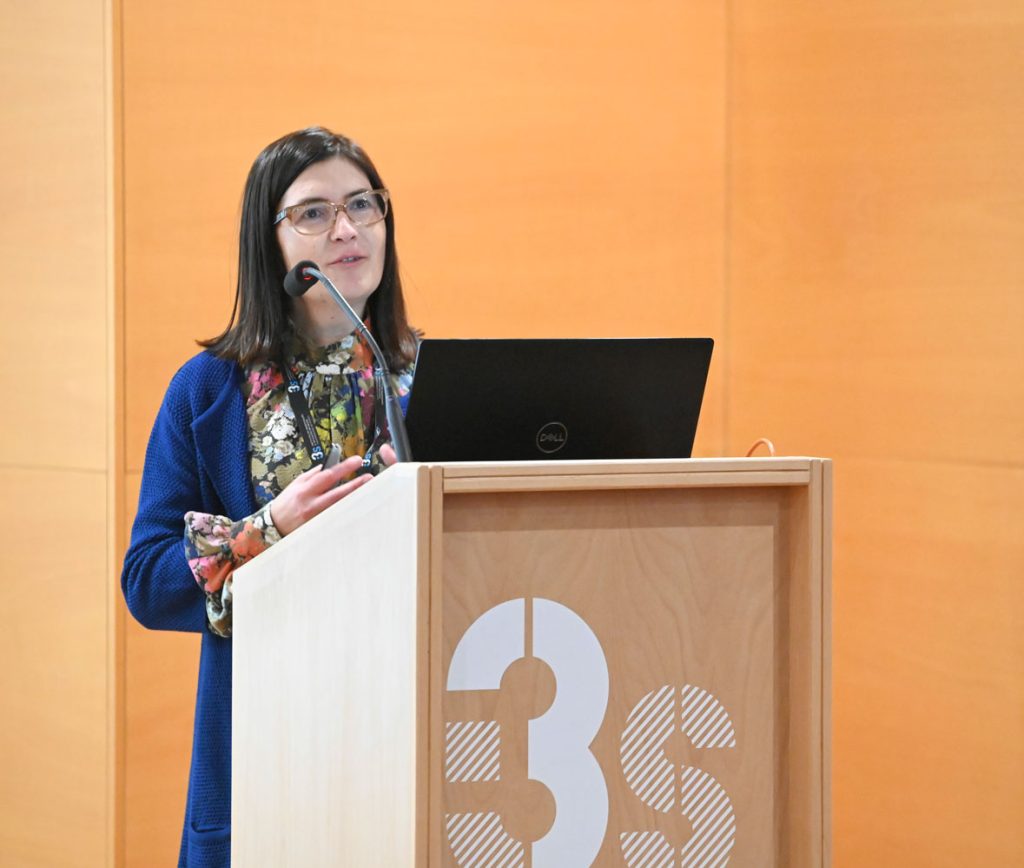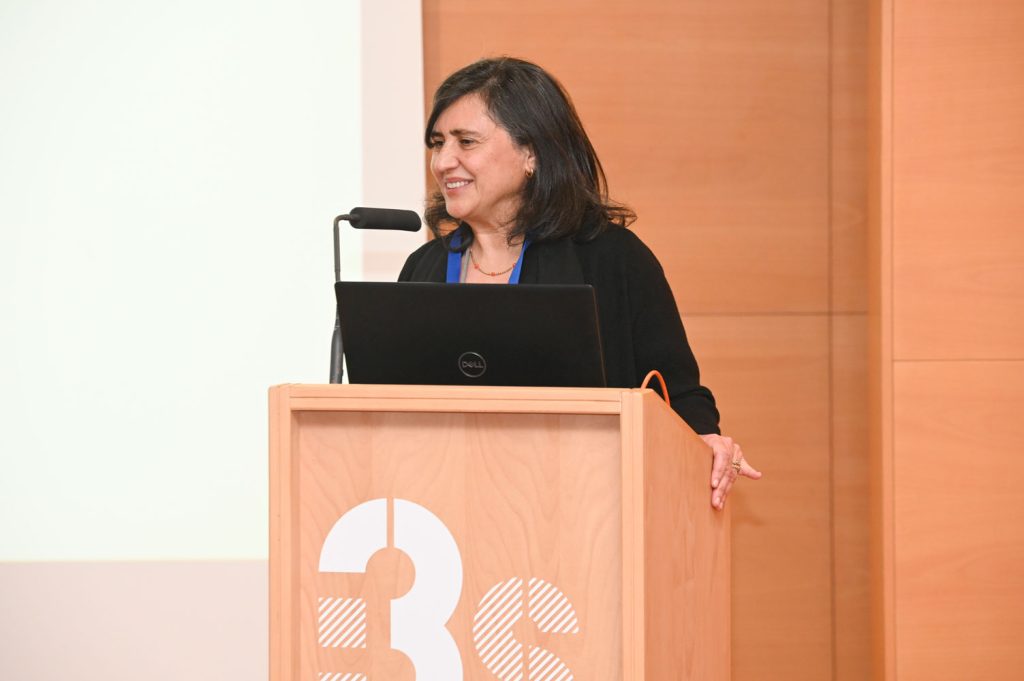On the 27th of January, INEB/i3S held the Launch event of the MOBILIsE project, an ERA Chair funded by the European Commission with 2.5 M€, which aims to position i3S as a European reference in the field of Molecular Bioengineering, in particular focusing on Materials Engineering and Nanotechnology. In the event 120 national and international participants were present, and it counted with the presence of the Portuguese Minister for Science, Technology, and Higher Education, Elvira Fortunato, who also took the opportunity to visit the facilities of i3S.
According to Helena Azevedo, the ERA Chair Holder, the project “will increase the national research and innovation potential, while boosting the translation of novel molecular targets towards the creation of diagnostics tools and molecular therapies in precision medicine in the main research areas of i3S: cancer, infection, neurodegenerative disorders, and tissue repair/regeneration”.
Molecular Bioengineering will contribute, for example, to improving the availability and efficacy of the existing drugs, to enable treatment in a more accessible and will lower side effects, as well as creating 2D and 3D innovative in vitro models to accelerate disease-related research and develop more efficient therapies.
Another great focus of MOBILIsE, adds Cristina Martins, the project coordinator, “is to increase the translational potential of research developed at i3S and to promote technology transfer to the clinics and industry”. For that, different activities will be promoted targeting key national and international partners, namely from academia, research institutes, the clinics, and industry. Moreover, a platform bringing together these different stakeholders in the northern region of Portugal is being established, in order to create the necessary critical mass in Molecular Bioengineering and to develop partnerships enabling the sharing of knowledge, students, and equipment, as well as to promote joint applications to research and/or translation projects.
The subject of knowledge transfer was widely debated in the Launch event, in which i3S young researchers presented their awarded innovation projects, with the challenges faced when juggling an academic career with initiatives geared towards startup creation or commercial exploitation were highlighted.
A productive debate regarding the challenges faced during the clinical and translation of results, in which the President of the Portuguese Foundation for Science and Technology (FCT), Madalena Alves, was present, as well as representatives of different sectors involved in this process, in particular, industry, clinics and funding and regulatory agencies. The participants highlighted the fundamental role of the Technology Transfer Offices in creating bridges between research and the market, insisting in the need for research organisations to have professionals with management and health economics competencies, as well as prior industry experience. The importance of supporting translational research to generate social and economic impact, as well as, fundamental research to create knowledge and push for innovation, was also emphasised.
As a way to drive industrial and clinical translation, the president of FCT, mentioned the fully funded PhD fellowships in non-academic environment to which the host institutions can already apply to. Different proof-of-concept funding tools are also under discussion as way to advance the development of technologies towards more advanced stages.
The availability of venture capital funding was also debated, as in Portugal this ecosystem is limited and has weak links to R&D organisations, prompting the need to define tools that promote a more stable interaction between these entities. As a whole, the innovation ecosystem lacks coordination between the different entities, highlighting the need to establish a long-term strategy to generate new products and services, integrating both disruptive innovation based on high risk R&D and the slower translational research. This long-term strategy should also contemplate the ambition of transforming startups into true industrial organisations, also including support instruments for companies that have already reached the market.
This was the first of a series of events that will be organised by the MOBILIsE project to discuss how to accelerate the process by which novel therapies and diagnostic systems currently under development, reach patients.



















